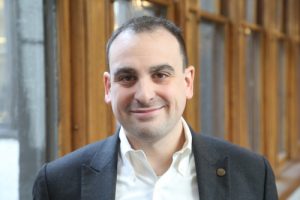October 23, 2025
Rule of Law Conservatives Grapple with New Identity at Tumultuous Summit

In a striking turn of events, the Society for the Rule of Law, a group predominantly made up of conservative and libertarian legal professionals, convened amidst the dramatic backdrop of the Trump administration's latest shocking move—the complete demolition of the White House’s East Wing. This act was starkly contrasted by a government shutdown, escalating the tension at the society’s annual summit held in Washington. Here, legal minds once aligned with traditional conservative values openly wrestled with their place in an era marked by constitutional crises and blatant defiance of judicial authority.
The conference, charged with uneasy laughter and grim humor, revealed a deep-seated anxiety about the erosion of democratic principles. In jest yet underscored by sincerity, attendees questioned the very pillars of American governance, from separation of powers to voter suppression tactics. The humor seemed less about amusement and more a coping mechanism for the disturbing realities they faced.
Speakers at the event, like George Conway and Norm Eisen, navigated through their discussions with a blend of cynicism and levity, illustrating the peculiar alliances formed in the face of governmental overreach. The underlying question persisted throughout the day: Is the conservative legal movement witnessing its end, or is this a pivotal moment to redefine its principles and reconstruct from the ashes?
Amid discussions on executive overreach and election security, a poignant moment came from Judge Michael Luttig, who expressed a measured yet palpable fury at the administration's overt disregard for judicial integrity. His remarks highlighted a Supreme Court perceived as failing to uphold its duties, thereby enabling continued executive abuses.
The summit not only served as a platform for airing grievances but also subtly pointed to a potential shift in conservative legal thought. Voices like Jonathan Rauch advocated for a nonpartisan approach focusing on constitutional fidelity rather than mere opposition to Trump’s antics. However, some participants remained entrenched in old guard ideologies, reluctant to relinquish the theories that arguably paved the way for current predicaments.
As the conference drew to a close, the conversation inevitably turned to the future role of principled conservatives. Is their task now to oppose or to resist? Former Congresswoman Barbara Comstock and others hinted at a broader, more profound role in shaping a civil society resilient enough to withstand and recover from authoritarian strains.
In a setting shadowed by past political controversies and current upheavals, the Society for the Rule of Law stands at a crossroads. Whether it will cling to the remnants of its former ideologies or forge ahead with a redefined purpose remains to be seen. As they plan for future gatherings, possibly under even more dire circumstances, the urgency for clarity and action becomes increasingly critical.